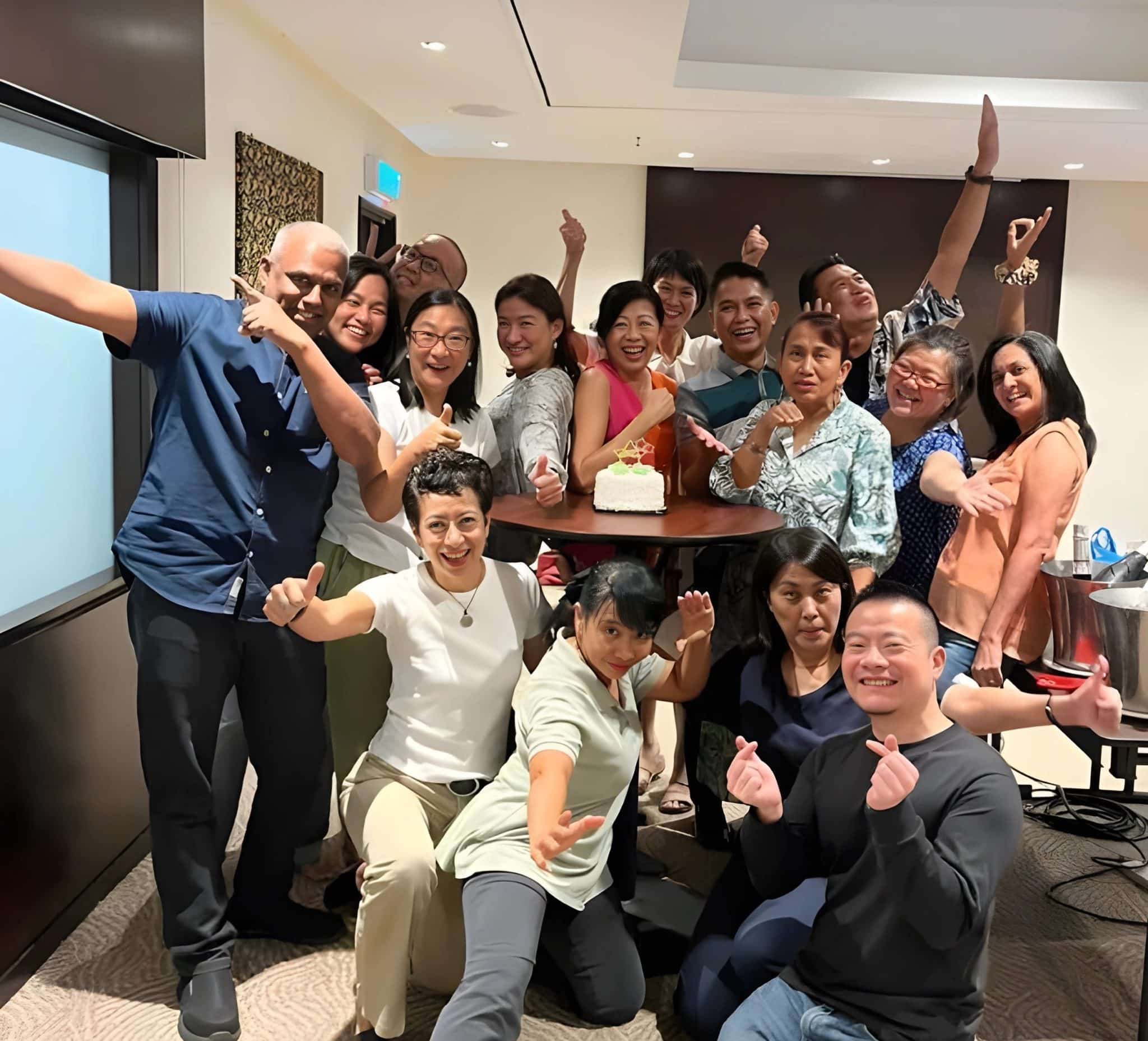Reducing food waste has lots to do with good stewardship: Founder of Malaysian surplus food grocer, Graze Market
Via the Salt&Light Malaysia desk
Michelle Chun // July 18, 2024, 2:02 pm
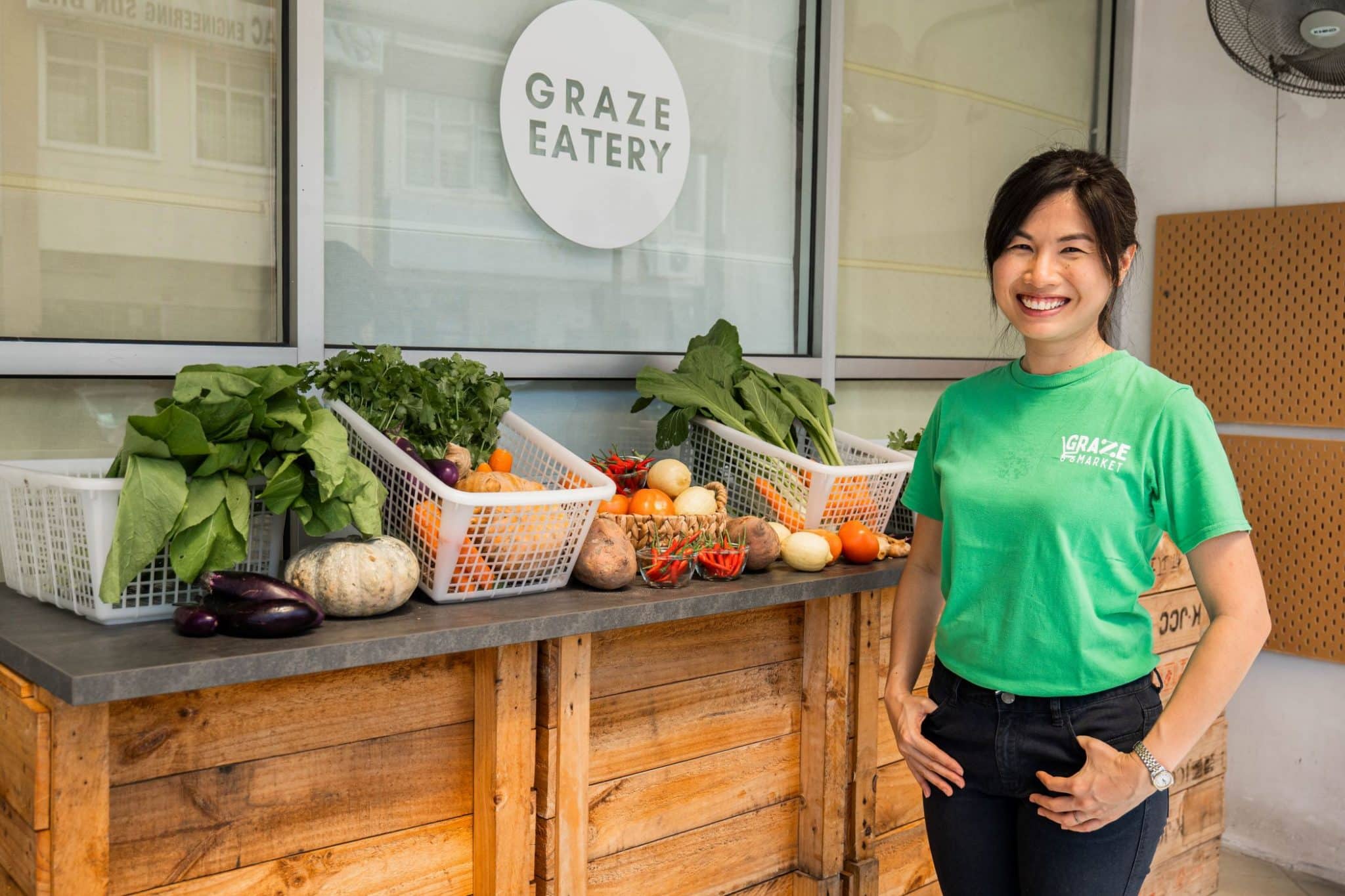
Struck by how much food wastage affects the earth and people, Clara Wan opened Graze Market in 2019 to tackle issues including food waste, food insecurity and climate change. All photos courtesy of Clara Wan.
When Malaysian Clara Wan first learned that fresh fruits and vegetables were being rejected by grocers or being thrown away simply because of visual defects, she was dismayed.
“In Malaysia, more than 15,000 tonnes of food are wasted on a daily basis. That’s enough to feed 12 million people, three times a day,” said the 37-year-old.
Struck by these facts, and with a passion for social and environmental causes, Clara decided to tackle the issue from the ground up.
From 10 boxes a week to 50 a day
In 2019, after spending seven years serving low-income families and students with a non-profit organisation, Clara decided to open Graze Market, a surplus food grocer, in Petaling Jaya.
“Not many churches emphasise the need to protect the planet. But God made the earth, and we are called to tend it.”
The first six months of running Graze Market was challenging. She had opened a physical store with only RM15,000 (S$4,300), and little clue about how to run a business.
“But I felt I needed to just stay in the game,” said Clara, who has a degree in finance.
Several months later, the pandemic hit. Overnight, Graze Market’s veggie boxes became a hit.
“We went from 10 boxes a week to 50 boxes a day. I then realised that low-income families without much access to technology would be impacted, so we worked with corporates to sponsor fruit and veggie boxes,” she shared.
These boxes were a blessing to the underprivileged community, as many food aid boxes were filled with dry goods such as rice, oil and flour.
When the pandemic passed, Graze Market reopened its retail space to sell premium food nearing their best before dates. The team now also produces its own sauces and marinades, and is venturing into the catering space to increase its impact.
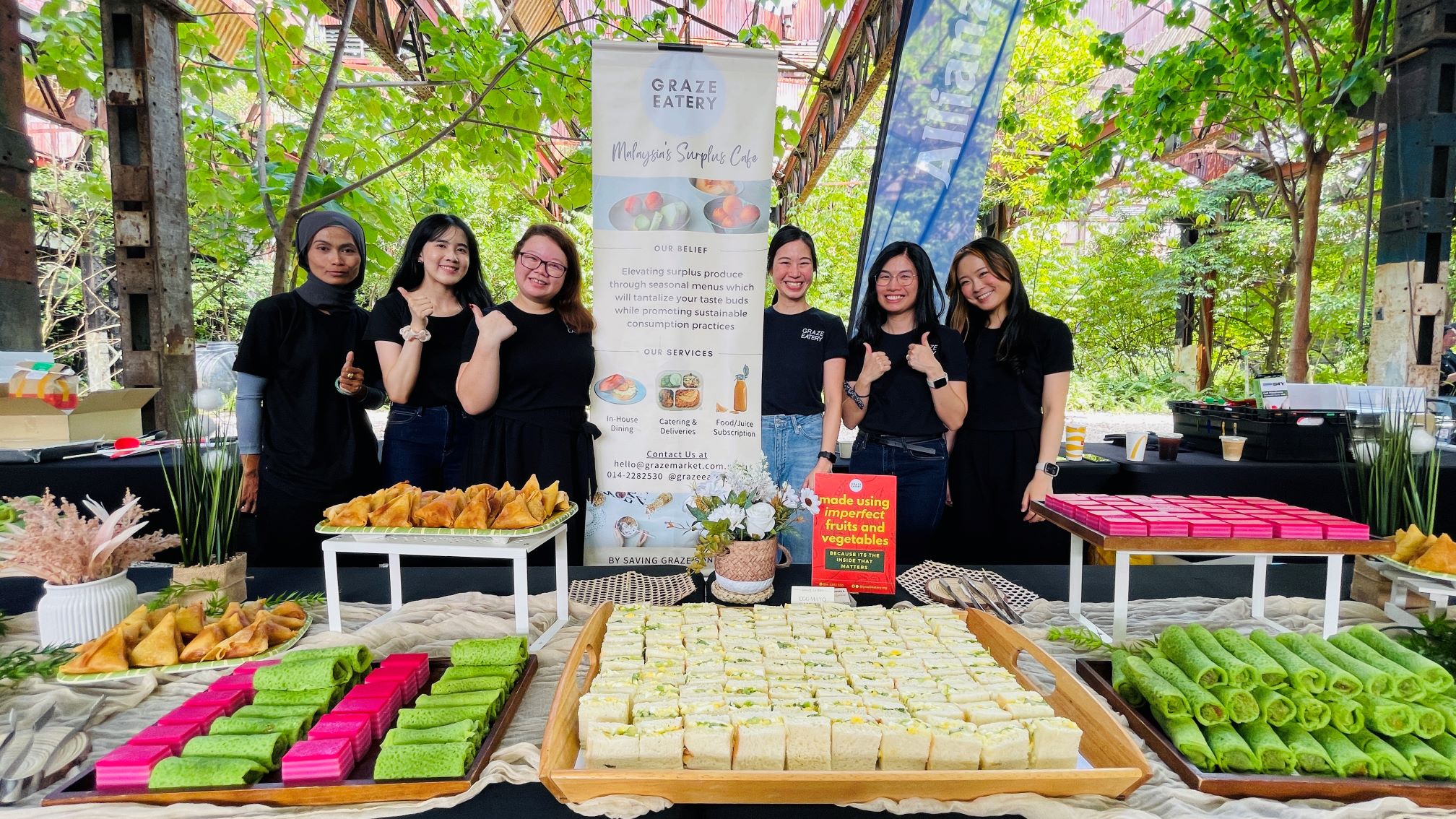
More recently, Graze Market started venturing into catering as a sustainable, high-impact way to tackle food waste and encourage responsible consumption.
What can the Church do?
Food wastage is not just a problem in Malaysia, but worldwide.
According to global statistics, a third of all food is wasted.
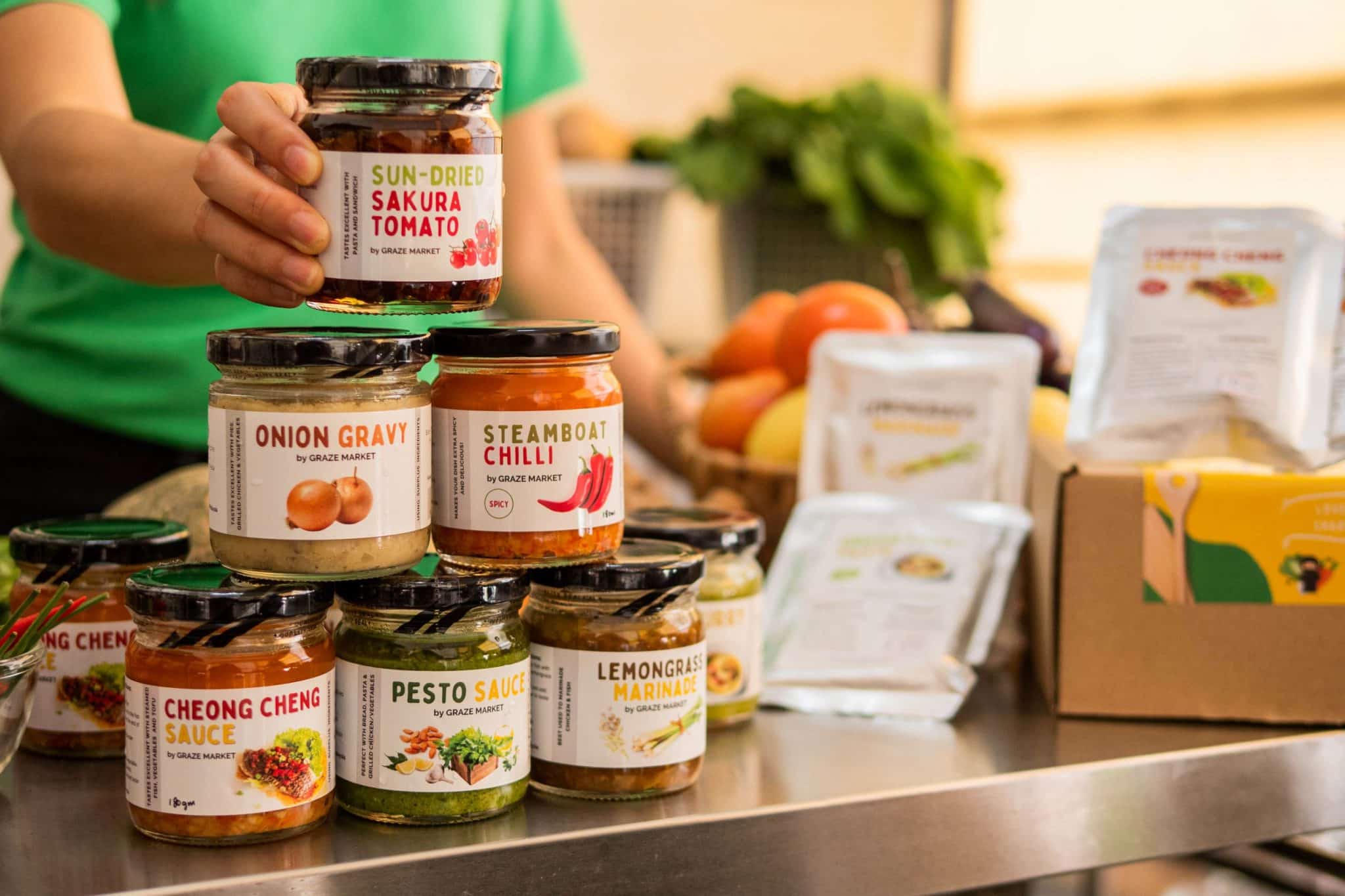
Graze Market started with surplus fruits and vegetables, but has since expanded to making their own sauces and marinades.
Food wastage means also discarding the energy used in growing, harvesting, preparing, transporting, packing and distributing it. Furthermore, wasted food produces methane as it rots in landfills, contributing to the problem of climate change.
She noted that in Christian circles, evangelism and social work are often the focus.
“Not many churches emphasise the need to protect the planet. But God made the earth, and we are called to tend it (Genesis 2:15),” she said.
Apart from damage to the environment, food wastage also affects people – in particular, the poor and needy.
“When we cause our earth to degrade faster, we are doing the future generations a disservice,” Clara added matter-of-factly.
Apart from damage to the environment, food wastage also affects people – in particular, the poor and needy.
The reality is, the world is growing enough food for everyone. But because so much is going to waste, millions of people are paying the price.
The ones who suffer most are the poor and underprivileged, who often lack access to nutritious food and the financial capacity to manage increasing prices.
Today, as many as 309 million people in 72 countries live with chronic hunger every day, according to the World Food Programme.
While Clara acknowledged that there are Christian impact investors sowing into creation care, she believes the Church can do more.
“In general, the whole idea of food waste applies to everyone. How can we spearhead such initiatives as a church? These are questions we can be asking,” she said.
Giving the business back to God
Since its inception, Graze Market has distributed imperfect fruits and vegetables to more than 10,000 people. The young entrepreneur knows more lies ahead.
“A big part of running an organisation is your internal growth, learning to rely on God. It’s easy to think it’s all just us. But when we realise it’s all by God’s grace, and that He can give and He can take, we grow,” she said.
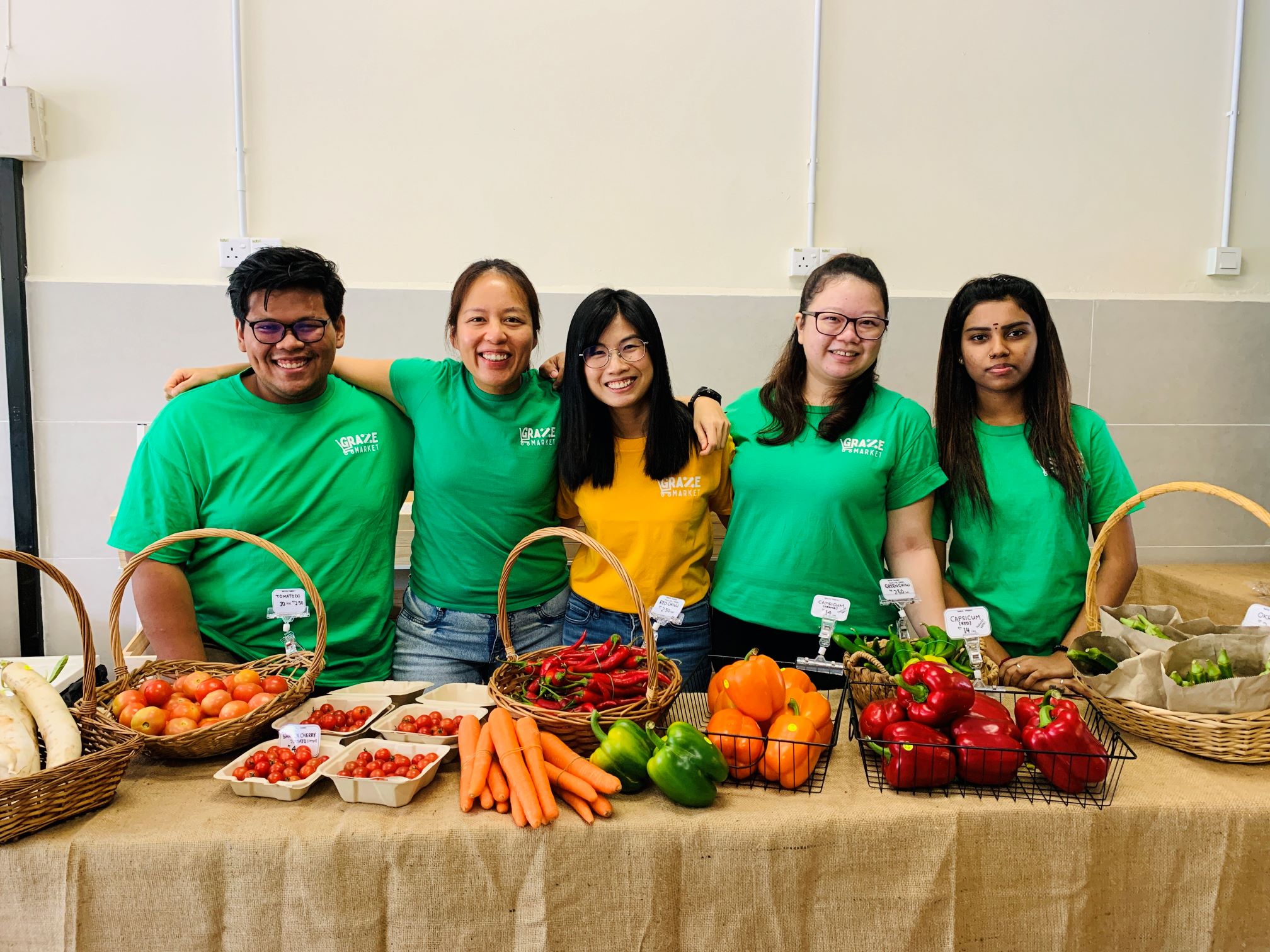
Having been at the helm of Amazing Graze for five years, Clara has learned to sow not just into her business but also into her team.
Clara is also a member of Accomplish Asia, a community that inspires impact-driven leaders to transform businesses and enrich lives.
“When I started, I had a purpose from God. But when struggles came, I went into survival mode. Now I’m asking, ‘How do I give this business back to God?’ I’m trying to put that into practice,” Clara mused.
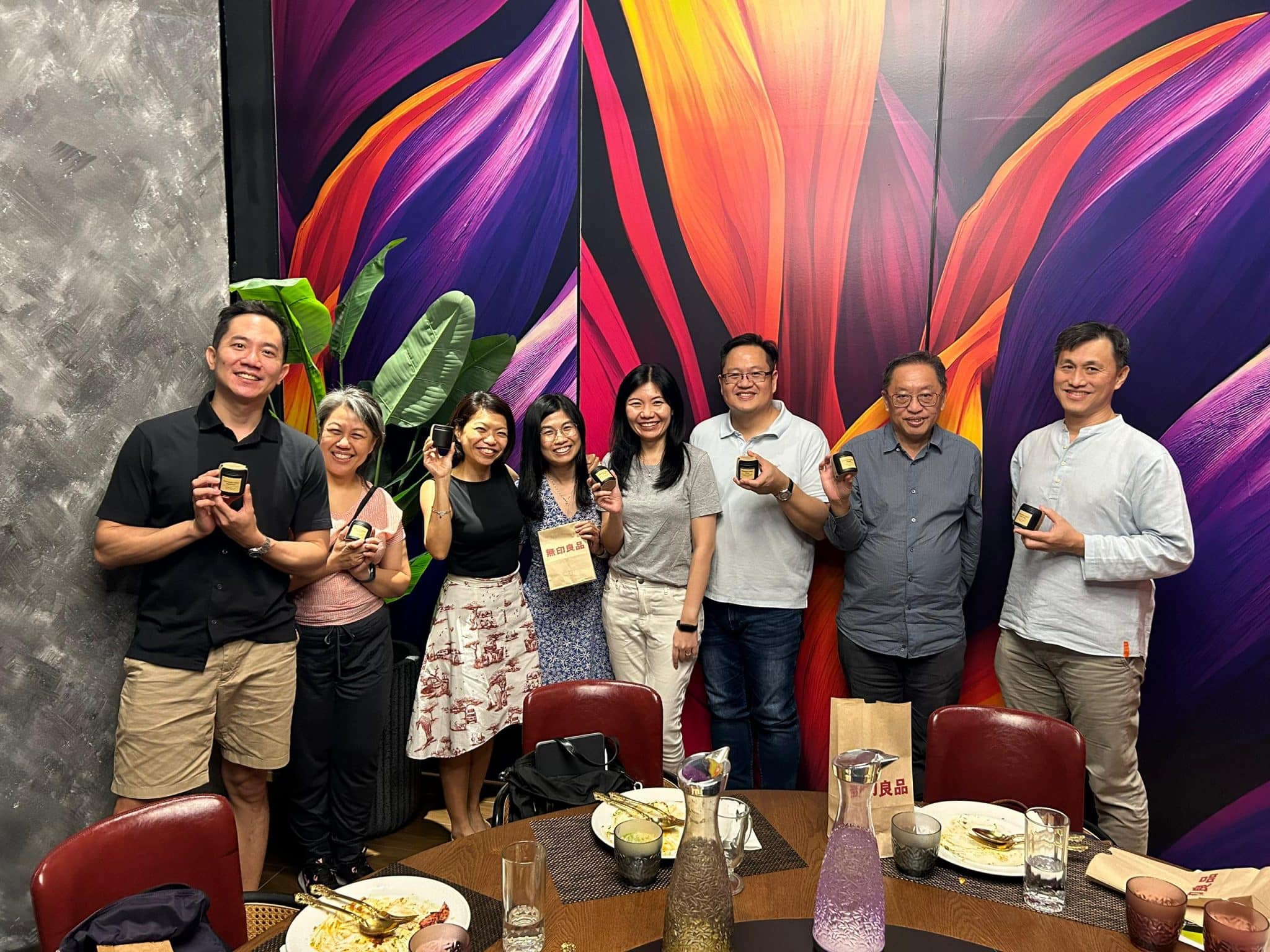
A member of Accomplish Asia, Clara is learning how to be a faithful steward of her business and lead with Christ-centred values for true success.
This shift in perspective has given her renewed courage to take risks.
“I have a tendency to hold back on funds, but I’m learning to sow. And it’s not just about resources, but the people we work with,” she explained.
Living out God’s purposes
Asked how we can know that God is calling us to initiate an idea that brings His purposes to life, Clara answered: God’s presence.
“As you spend time with the Lord and share moments with Him, you will have a sense of God’s heart,” she said.
A practical check is to ask if this initiative will help you to know God and make Him known in whatever space you’re in, be it the workplace, in service or in ministry, she added.

Next to the surplus food market, Graze Market also runs a small cafe, Graze Eatery with a menu based on the available surplus produce.
“If you’ve ticked off these two points, then it’s time to take the step of faith. In the beginning, it can look like you’ve gone off (track), but just staying in the game and being faithful will bring you to a place of God’s unfolding,” she said.
For Clara, stewardship means being faithful in whatever opportunities God gives her.
Through the vicissitudes of life and running a social enterprise, the young entrepreneur holds onto John 14:27.
“Peace I leave with you; my peace I give you. I do not give to you as the world gives. Do not let your hearts be troubled and do not be afraid.”
Her focus is to ensure she’s living out God’s purposes for her daily.
She said: “I didn’t plan to be an entrepreneur. But having been in this space for five years, I now see it as a God-given opportunity to serve Him, care for our planet and love others.”
RELATED STORIES:
Creation matters “because it’s the handiwork of God”: Conservationist Peter Harris
We are an independent, non-profit organisation that relies on the generosity of our readers, such as yourself, to continue serving the kingdom. Every dollar donated goes directly back into our editorial coverage.
Would you consider partnering with us in our kingdom work by supporting us financially, either as a one-off donation, or a recurring pledge?
Support Salt&Light
